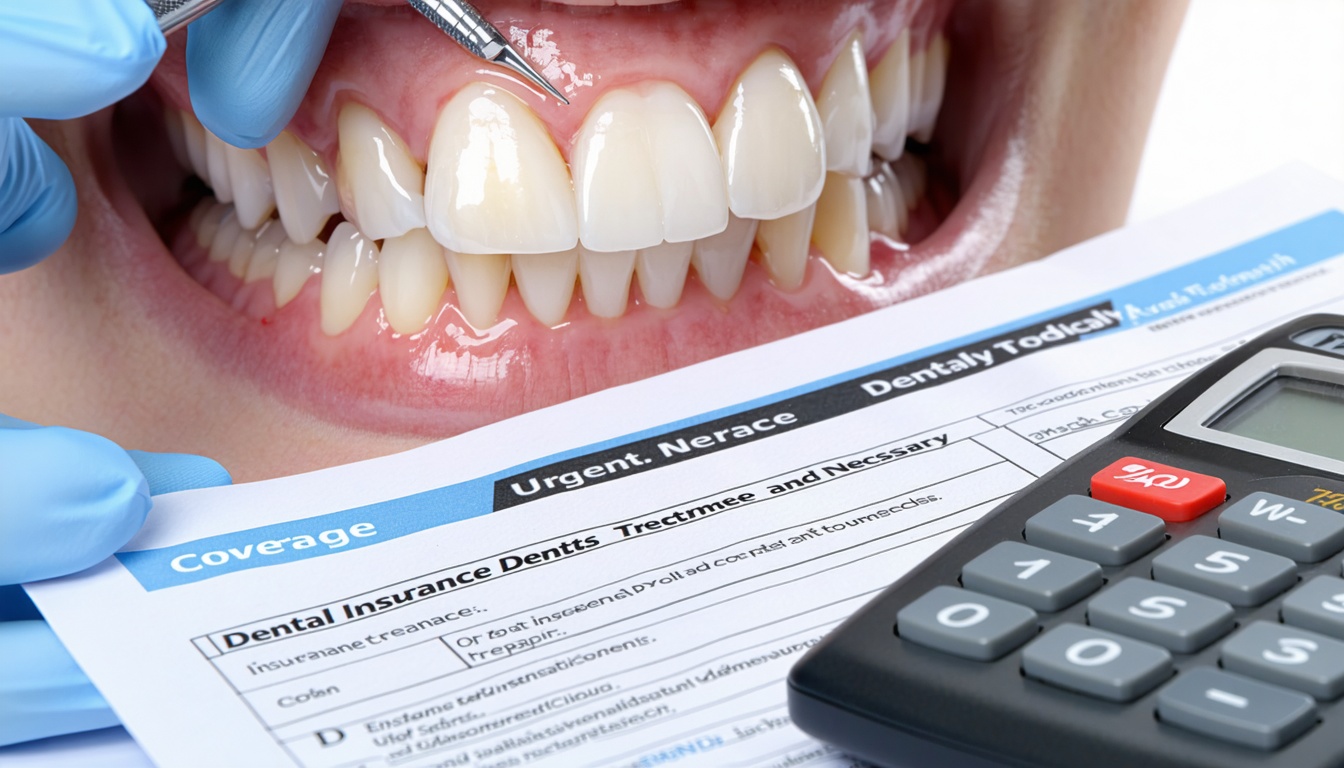
When your tooth breaks, you need care fast—and you want to know if broken tooth repair covered by insurance. Whether you have a dental plan, a medical policy, or Medicare, coverage depends on the cause of your injury, the type of repair, and your specific benefits. In this guide you’ll find clear, step-by-step info on how dental and medical insurance handle broken tooth repairs, what treatments are typically covered, and how to minimize out-of-pocket costs so you can focus on your recovery.
Insurance coverage splits into two main categories—dental plans and medical plans. Understanding how each approach works helps you choose the right provider and avoid surprise bills.
Below is a summary of typical broken tooth repairs and which insurance types usually apply.
| Procedure | Dental insurance | Medical insurance | Medicare |
|---|---|---|---|
| Chipped tooth | Covered under restorative benefits | Only if due to trauma | Excluded except rare inpatient exceptions[1] |
| Root canal | Often covered as basic or major service | Covered when infection or trauma threatens health[2] | Excluded except select transplant/radiation cases[3] |
| Crown | Major restorative care (50–80% covered) | Covered if part of medical necessity (jaw fracture, cancer prep) | Excluded |
| Implant | Varies by plan; may require waiting | Covered if reconstructive after severe trauma | Excluded |
A minor chip may only need smoothing and a tooth-colored filling. Dental plans often cover these under basic restorative benefits. If your chip follows a fall or impact, a medical policy might kick in—check with your insurer and ask your dentist to bill it as an injury repair (chipped tooth emergency care with insurance).
When a break exposes the pulp or causes severe pain, a root canal can save your tooth. Most dental plans classify this as a major service, covering 50–80% of the cost after your deductible. If the root canal is required due to infection from trauma, you may qualify for medical coverage—ask about an emergency procedure code (emergency root canal covered by cigna, root canal covered by delta dental).
A full-coverage crown restores shape and function when a large portion of the tooth is lost. Dental insurance typically covers crowns under major restorative care, subject to waiting periods and annual maximums. If your crown follows treatment for a jaw fracture or cancer, medical insurance may cover part or all of the cost.
Implants replace teeth that cannot be salvaged. Coverage varies widely—many dental plans exclude implants or limit them heavily. However, medical policies sometimes cover implants when they’re needed to reconstruct your smile after serious facial trauma (dental surgery covered by delta dental).
Dental plans are designed for non-emergency and emergency care alike, but benefits depend on your plan level and provider network.
If you have Aetna, ask about pain relief dentist accepts aetna. Blue Cross Blue Shield members can see which services fall under dental emergencies covered by bcbs.
Medical plans step in when dental injuries overlap with broader health concerns.
If your broken tooth results from an accident, medical insurers often cover emergency repairs and reconstruction. Typical reimbursable treatments include:
Your dentist should file claims under medical codes to capture these services (dental injury treatment covered by insurance, insurance-approved-dental-injury-treatment).
Medicare and many private plans recognize dental procedures as integral to medical treatment in specific cases:
These exceptions can be complex; always verify with your insurer in advance (NCBI Bookshelf).
Medicare generally excludes routine dental services but allows narrow exceptions.
Carrier interpretations vary—you may need detailed medical necessity documentation to secure benefits.
When insurance falls short, you still have options to manage expenses.
Health savings accounts and flexible spending accounts let you pay for eligible dental treatments with pre-tax dollars. If your dentist determines a broken tooth repair as medically necessary, you can cover fillings, root canals, crowns and even implants through your HSA or FSA (Humana).
According to the American Dental Association’s 2020 survey, repairing a chipped tooth can range from $200 for a filling to $2,000 for an implant, and root canals can cost $470–$1,500 (Humana).
Immediate action can save your tooth and reduce costs. Follow these steps:
Once your emergency is managed, plan for definitive repair with minimal stress.
Taking these steps ensures you’re prepared for follow-up care and helps you maximize your benefits, reduce surprises and secure the support you need for a lasting recovery.


